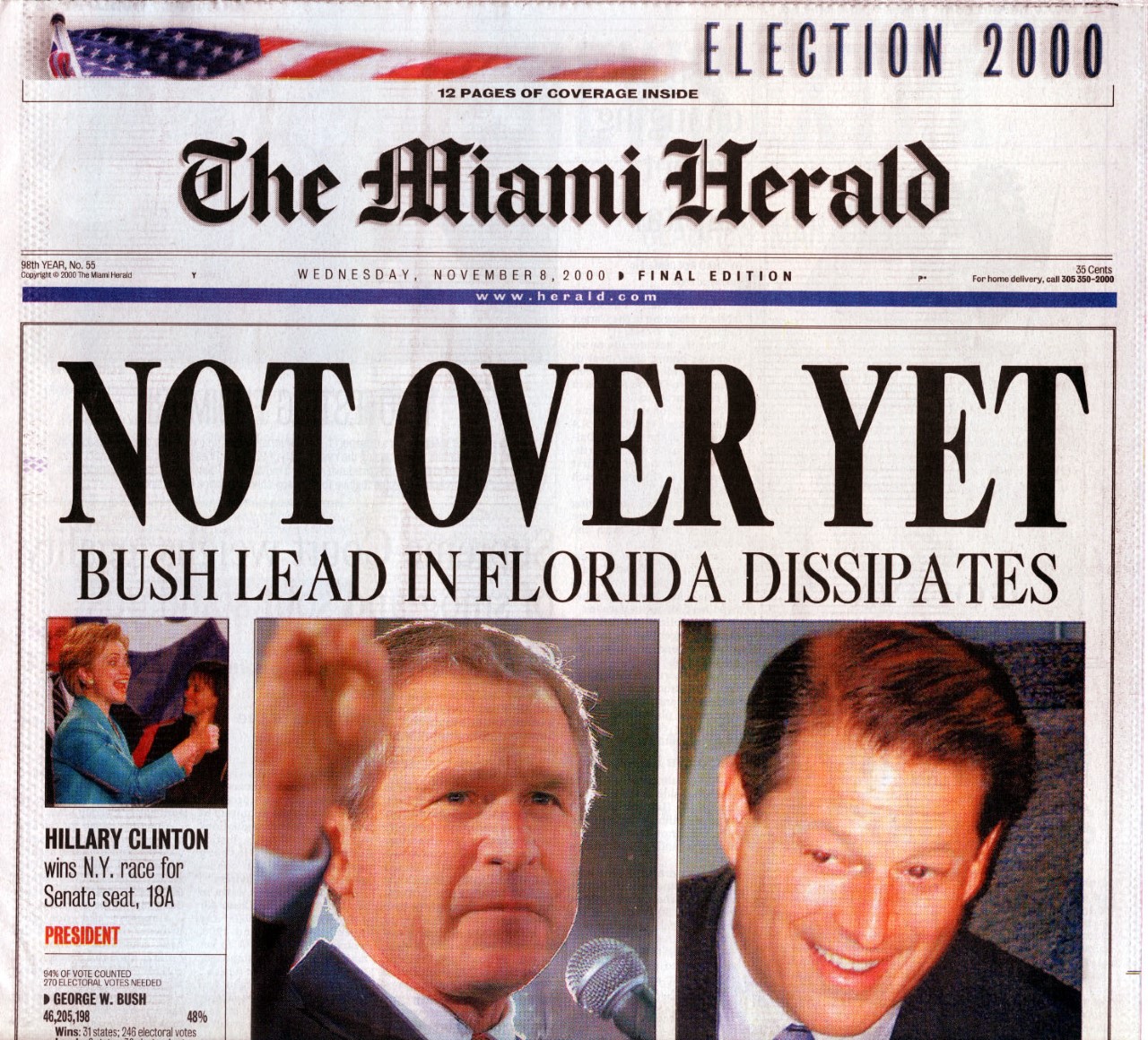What it was like to cover Illinois House Speaker Mike Madigan
He always meant what he said, but figuring out what he said, and meant, was the tough part.
It was the ongoing theme of covering a powerful figure in Illinois politics who often was a man of few words, unless it suited him to be more verbose or more available. It was always fascinating trying to figure out how he worked.
Illinois House speaker Michael Madigan stepped down from his house seat last week after nearly 50 years in the legislative body, and three and half decades as speaker.
I became the Statehouse Bureau Chief for Illinois Public Radio in 1995. As I began my 10-year stint on that job, he was at the beginning of a two-year period in the wilderness, as the Democrats lost control of the House following the Republican sweeps of 1994, thus relegating him to minority leader status until he regained the speaker’s gavel the next election cycle, which he then retained until this year.
During that two-year period, he largely was holed up in his office, rarely visible and he rarely spoke on the floor; but when he did, he was still effective. Then-Minority Leader Madigan came out against a Republican backed tax that would pay for clean up of leaking underground gas tanks. His speech, and threats of pinning the tax on Republicans, scared the GOP, instantly forcing them to rethink and repackage the legislation to make it more palatable.
For reporters, and most anyone else for that matter, he was a tough nut to crack and even tougher to dissect. He was not about publicity. He was about getting and keeping a Democratic majority in the Illinois House and keeping and expanding his power base. He also paid great attention to serving his constituents in his district.

He knew how to perplex observers and scare his supporters. Labor unions were always a backbone of his support. However, he came out with an announcement during a 1997 speech to the House suggesting that perhaps teacher tenure could be abolished. In so many cases as a reporter, it was a challenge to try to figure out what he was doing. Not that I always came up with the right answer. In that instance, the tenure elimination did not happen, but it put the Speaker in a position for negotiation and maybe paid back the Illinois Education Association with some mental anguish for cozying up to the Republican House Speaker the prior two years.
Unlike many politicians–former Illinois Gov. Rod Blagojevich comes to mind, Madigan eschewed the spotlight. He did not like to be on stage. He was too busy directing. And if he was in the spotlight, it was for a purpose. For instance, during his high stakes battle with Republican Gov. Bruce Rauner, he held frequent news conferences to get his message out.
He was a worker, relishing in the details on politics and lawmaking. He excelled in the “boring, but important things” like focus, diligence, strategy, legislative rules and having top notch workers on his Capitol staff. He was smart. It is always gratifying, as a reporter, to deal with those who have a strong grasp on all aspects of an issue.
He appeared unflappable. I never witnessed a heated exchange with a reporter. He might make a wry comment about a news outlet with a smile on his face. At most, his anger might lead him to ignore a question. He was honest in answering the questions he did answer, but what would sound like a good answer to a question, was, upon further reflection, often an answer that could be interpreted more than one way, which made it hard to determine if he flipped on an issue or was dishonest. He showed me that the accumulation and maintenance of power takes focus, dedication, and quiet work if it is to be maintained. Less flash, more substance.
One evening, I was lucky enough to catch Madigan alone walking back to his office, asking about some controversial legislation. It was an adversarial but polite exchange. He kept walking at the same pace. He was not trying to run away like many others seem to do when questioned by a reporter. Yet he never directly answered the question. We got to his office door, and he calmly, matter-of-factly, shut it in my face. That is what it was like to cover Madigan.
When flying back to the United States after Gov. George Ryan visited Cuba, Madigan came to the back of the plane where reporters were sitting. He wondered aloud why White Sox great Minnie Minoso, a native Cuban, was not invited along. Those were the casual type of thoughts he would offer up now and then, offering a bit of insight into his personality. When I was discussing upcoming gambling legislation in his office, he offered up a story that as a youngster he was at the track with his father and bet on the horses. He lost. He told me he never bet again. Except for politics. His attention to detail and his focus told me he liked to mitigate risk in those bets wherever possible.
There was fine reporting along the way, especially the Chicago Tribune’s efforts explaining how his power helped Madigan in private life with his law firm’s property tax appeals and its effective representation of its clients. And reporting of sexual harassment of staff by Madigan associates.
With a citizenry that pays little attention to how state politics work, partisan cries and editorial boards criticizing what they felt amounted to one-person-rule seemed to bounce off him, mostly. Although a reporter might pay the price for an editorial board pronouncement with the speaker avoiding the scribe more as a penalty. Tribune reporters, especially.
Along with the sexual harassment claims, the big dent in his public persona took several years and millions of dollars in ad money. Mostly funded by Rauner and other big spenders, they were able to go after Madigan in several campaigns, as if Madigan were on the ballot statewide, rather than a lawmaker from the southwest side of Chicago. Several years of million-dollar spending, Commonwealth Edison’s admission they worked with top aides to Madigan to help with patronage hiring in trade for favorable legislation weakened him among younger, more progressive lawmakers. Madigan denies any wrongdoing. Madigan was implicated but has never been charged.
With the writing on the wall, he helped his predecessor get the speaker’s job and he left politely and without fanfare. Madigan remained calm in public. No whining. Just praise and thanks. No insurrection.
Madigan’ work ethic and discipline always struck me. It seemed like he stood out by not standing out.
One time walking out of the capitol at the same time, I jokingly asked him “Going out for a night on the town?” His response, in his understated South Side accent: “That would be counterproductive”.
He liked order and rules.
I always noticed he would follow rules that were set out in the Illinois state capitol, that most politicians ignored. Prior to a shooting of a security officer at the capitol entrance, there used to be a quaint method of keeping track of who was in the building. People coming and going were required to sign a register book during off hours with time entered and time left.
I would see Madigan leaving the building alone in the evening. He would stop and sign the book. Yet a group of us were walking out one night with Ryan when he was governor. We stopped and signed the book. Ryan looked perplexed and bemused. He signed. One could tell Ryan was unaware of that rule and never stopped to sign it in recent memory. It was those details to which Madigan paid attention. A hands-on leader who liked the rules and has avoided charges. Ryan on the other hand, a hands-off leader and not keen on details ended up in prison.
I was moving on to manage the NPR station in Springfield. Madigan called me to wish me well. I couldn’t get an interview but got the phone call instead. I asked him if he had any managerial advice to offer me. Madigan said “My style probably doesn’t work well for others. I’m very hands on.”
His style worked for a long time.
Bill Wheelhouse spent 30 years in public radio in Illinois. He served as statehouse bureau chief for Illinois Public Radio from 1995-2005. He was also general manager of WUIS public radio in Springfield. He is a past president of the Illinois News Broadcasters Association and oversees the broadcast journalism website ibanewsroom.org


